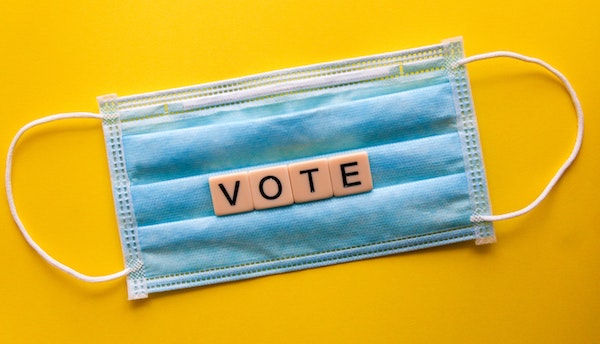Although Facebook is not the only social media platform, it is still the most popular one in the US. 69% of US adults are on Facebook and 74% of users are on the platform daily. Using Facebook for political campaigns is an invaluable way to connect with voters, volunteers, and potential donors.
In this post, we’ll go over some best practices for political campaigns on Facebook to effectively engage with voters.
1. Set up a public page for your campaign
We know this is a given, but it needs to be said. Make sure you set up a public page specifically for your campaign. Don’t use your personal Facebook profile.
2. Post often but strategically
You should post on Facebook at least once a day. If you don’t feel like you have enough content, aim for 4-5 times a week, but make sure your page is active and has content that will keep your followers engaged.
Post should include information about upcoming events, photos of meet-and-greets, any activities you are engaging as a candidate, canvassing and volunteer opportunities, and fundraising posts. Good professional pictures are a plus!
3. Use your Facebook page to fundraise
Make sure you put your fundraising efforts front-and-center. Don’t forget, the focus besides getting people to vote is to get them involved in your campaign, and there is no better way to get involved than to donate. In addition, you will need these donations to run political ads.
4. Promote your page and your campaign with Political Ads on Facebook
Running a Facebook political advertising program is one of the most effective ways to get more people in your city or district to know about your campaign.
Facebook ads enable you to reach a wider audience than the people who are already following your page. You can promote your campaign in appropriate geographic areas and also focus on specific demographics, such as gender and age groups.
We strongly recommend you hire or get a volunteer who knows how to run political ads campaigns and is familiar with Facebook’s political ads policy.
5. Do Facebook livestreams
Livestreams have taken over social media. They are a great way to engage with your audience in real time, and many popular politicians have used this tool to regularly interact with their constituents (or even people outside their constituency).
Especially now when rallies, town halls, and meet-and-greets are not possible, live videos on Facebook or Instagram are a great way to keep connected with your audience.
6. Proofread and fact-check your posts prior to publishing
Proofread: Ok, this is a BIG ONE. Even if you are an excellent writer typos happen, even to the best of us. Having misspelled words or grammar mistakes can take the focus off your message, and your opponents will have a field day with it. We know most social media posts are done using our phones, but we recommend you write out your post and have someone proofread it before you hit submit.
Fact-check: Make sure your posts, comments, or statements are thoughtfully written and don’t have any misinformation on them. Don’t just share or retweet any information you think “might” be correct.
7. Post in your own voice
Look, we know most candidates have people running their social media pages, but it’s also nice to be able to see that the candidates are involved in each post, especially the most personal ones. Remember that people are voting for the candidate, not their staff.
Share photos from “behind the scenes,” or maybe even selfies.
8. Engage with your audience
A big part of what makes an effective social media campaign is engaging with your followers. Having a public page is about getting voters to know you, but you should also use it to get to know them. Make sure to read every comment and every message. Try to answer most of them, and be diplomatic about the ones that don’t share your views or values.
9. Don’t feed the trolls
We know you might get some negative comments and some internet trolls might start following and commenting on your page. The best thing to do is to ignore the trolls. Don’t block people unless they are directly harassing you or using hate speech. Public officials should not block people on Facebook, and as a candidate it might look bad to block people who don’t agree with you. Blocking people might backfire and cause more issues than the original comments did. However, you can hide any comments that are offensive and refer to your social media policy.
10. Ask people to take action
If you want people to take action after seeing your post, ask them directly to do so. You can ask people to vote, to donate, to volunteer or even to share, retweet, or comment on your post.
To expand your reach, ask your volunteers to share your posts and tag their friends when they do that.



